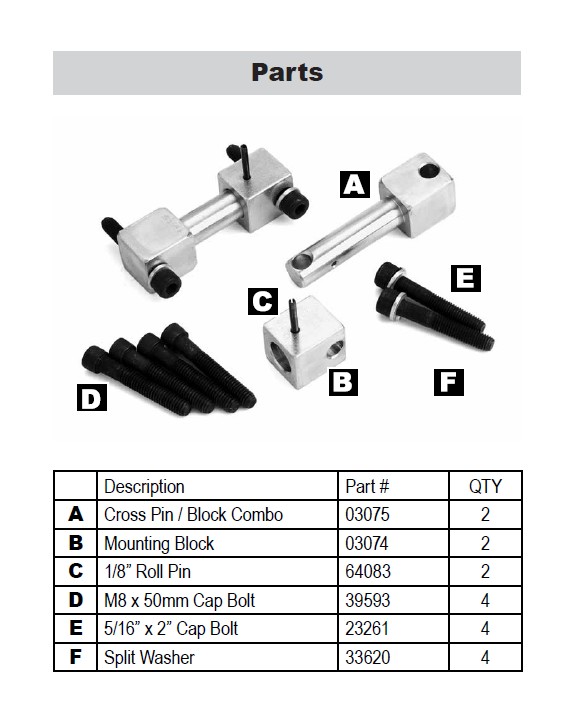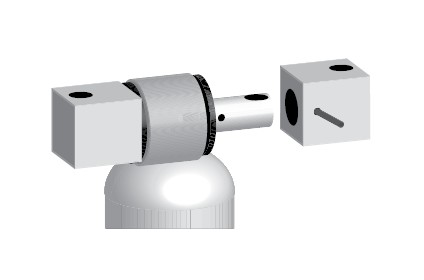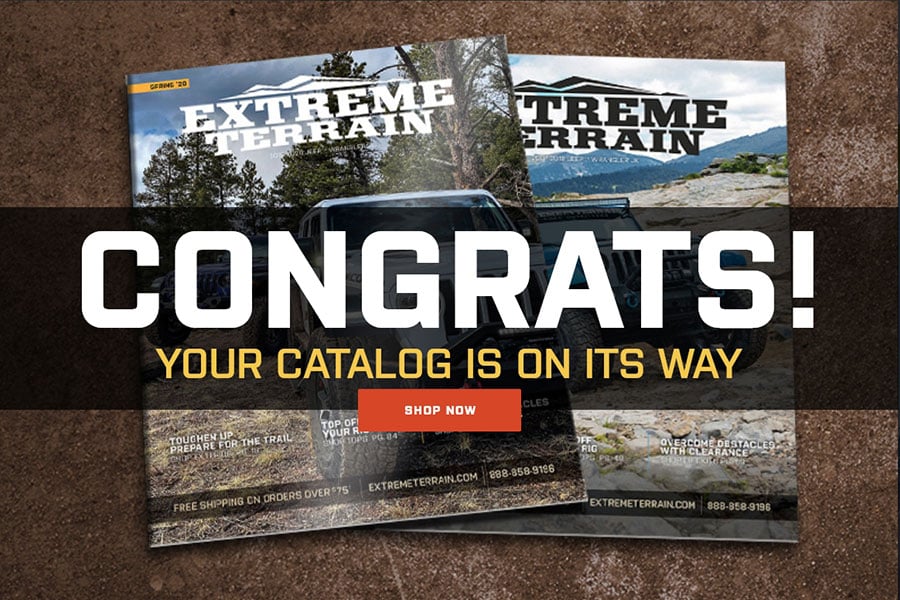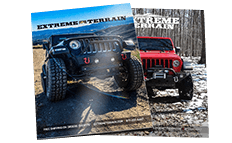

How to Install Zone Offroad Top Mount Bar Pin Eliminator - Rear (97-06 Wrangler TJ) on your Jeep Wrangler
Tools Required
- Metric/Standard Socket Wrench Set
- 6mm or 1/4” Allen Head Socket with Long Extension
- Torque Wrench
- Wheel Bearing Grease
- Bench Vice or C-Clamp
- Hammer and Punch *
- Sanding or Grinding Wheel *
- Factory Service Manual (recommended)

Shop Parts in this Guide
Welcome
CONGRATULATIONS on purchasing new Bar Pin Eliminators from JKS Manufacturing. We are committed to providing you with the best products available and your satisfaction is our first priority.
PLEASE READ these Installation Instructions carefully, and save them for future reference, as they contain important installation and maintenance information.
Important
NOT COMPATIBLE WITH Old Man Emu™ shock absorbers.
INSTALLATION OF BAR PIN ELIMINATORS effectively reduces the static length of shock absorber by 0.40”.

Installation
1. REMOVE SHOCK ABSORBERS
Remove the rear shock absorbers per factory service manual instructions for your vehicle.
Remove the factory bar pin from the upper shock absorber bushing. HINT: A hammer and punch may be useful for removing bar pin.
Inspect shock bushings for wear and deterioration. If new bushings are needed, replace with standard 5/8” ID hourglass type bushings before installing Bar Pin Eliminators.
2. MOUNT BAR PIN ELIMINATOR TO SHOCK ABSORBER
Apply a thin coating of wheel bearing grease to the Cross Pin (A).
Insert Cross Pin (A) through upper bushing of shock absorber.
Slide remaining Mounting Block (B) onto opposite end of Cross Pin (A), making sure bolt and roll pin holes are correctly positioned.

IMPORTANT: This product is designed to preload the shock absorber bushings for maximum performance and longevity. Therefore, you should find it necessary to compress the bushing approximately 1/16” to 1/8” before the mounting bolts and/or roll pins can be inserted.
If you are able to install the mounting block without compressing the shock bushing, insert a SAE 5/8” flat washer (not supplied) between the bushing and Mounting Block to ensure proper bushing preload.
Squeeze Mounting Blocks together to compress the shock absorber bushing until bolt and roll pin holes align. HINT: A bench vice or C-clamp is useful for compressing shock absorber bushing.
Tap the 1/8” Roll Pin (C) through Mounting Block (B) and into corresponding hole in Cross Pin (A).
3. RE-INSTALL SHOCK ABSORBERS
Clean any dirt or debris from the upper shock mounting surface on chassis. HINT: A sanding or grinding wheel is useful for removing any stubborn material.
Determine whether rear upper shock mounting holes in chassis require metric or standard bolts. HINT: Depending on the vehicle, the rear shocks mount to the chassis with either metric or standard bolts. Both types of bolts are supplied with the Bar Pin Eliminators.
Place a Split Washer (F) on each of the appropriate Cap Bolts (D or E).
Position Bar Pin Eliminator on mounting surface of chassis. Insert Cap Bolts through mounting blocks and thread into original shock mounting holes. HINT: Mounting Blocks of Bar Pin Eliminator must lay completely flat against mounting surface of chassis bracket.
Using a torque wrench, tighten mounting bolts to 25-35 ft-lbs.
Install shock absorber to lower mount per factory service manual instructions.

